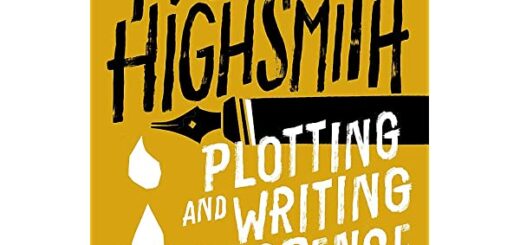A Collection of Essays by George Orwell
The year 1984 has come and gone, but the work of British author George Orwell (1903 – 1950) lives on. Like Stanley Kubrick’s masterpiece movie, 2001, the novel Nineteen Eighty-Four did not quite predict accurately what was to come – the future did not turn out to be so futuristic after all, just more of the same. Yet Orwell remains essential reading, one of the great original thinkers of the 20th century, who carved out such a niche for himself that it is possible to use his name an adjective: “Orwellian,” to indicate a world of thought-control and propaganda, where “keeping the peace” means to launch a war and everything is turned upside down.
Most readers are familiar with Animal Farm and Nineteen Eighty-Four, Orwell’s two horrific visions of 20th century totalitarianism, but his essays are perhaps even more relevant to us today and should not be missed. Originally published in 1946, A Collection of Essays contains the most famous of Orwell’s short non-fiction, starting with “Such, Such Were the Joys . . . “ a 50 page memoir of the author’s education at Crossgates, a sadistic, snobbish British school – a “public” school, as private schools are called in England – that Orwell was sent to at an early age when he was still wetting his bed. “Do you know what I am going to do if you wet your bed again?” a stocky, middle-aged housemother asks the eight year old child after a repeated offense. “I am going to get the Sixth Form to beat you!” Only Charles Dickens (who is the subject of the second essay in the collection) ever wrote about the terrors of a British childhood with as much humor and pathos as Orwell does in these pages.
There are fourteen essays in this collection in all, covering a wide variety of subjects, from “Reflections on Gandhi” to “Looking Back on the Spanish War.” The most famous essay, however, is “Politics and the English Language,” which manages to cover two profoundly different aspects of bad writing in less than twenty pages: sloppy writing, using muddy metaphors and tired clichés that convey no fresh image, and political “bad” writing, the use of language to deliberately obscure truth.
Political speech, he tells us, is written largely in defense of the indefensible, so euphemisms are useful to the sly official seeking to avoid moral blame. Dropping bombs on innocent civilians – this is called “pacification,” and so forth, the language of evasion that people use when they dare not tell the truth. “Spin,” we would call this today, but no one has ever taken on this subject with quite the zest and dark humor of Orwell. As for the casual practitioner of the English language, the rules for style that he lays down should be posted on every writer’s computer for quick reference.
Let me give them to you whole:
(i) Never use a metaphor, simile or other figure of speech which you are used to seeing in print.
(ii) Never use a long word where a short one will do.
(iii) If it is possible to cut a word out, always cut it out.
(iv) Never use the passive where you can use the active.
(v) Never use a foreign phrase, a scientific word or a jargon word if you can think of an everyday English equivalent.
(vi) Break any of these rules sooner than say anything outright barbarous.”
George Orwell gave us an uneasy view of modern life, the dangers and lies and hypocrisy that surround us. “Orwell was the conscience of his generation,” wrote V.S. Pritchett. It is a conscience that lives on as we enter a new age of Orwellian advertising and propaganda, the thought-control of those who would prefer for us be sheep, easily fleeced.
- National Epilepsy Day 2023:Common Signs And Symptoms - November 17, 2023
- Top 10 Cosmetic Packaging Designers in the USA - April 12, 2023
- Luxury Website Designers: The Ultimate Guide to Creating a High-End Website - April 10, 2023


